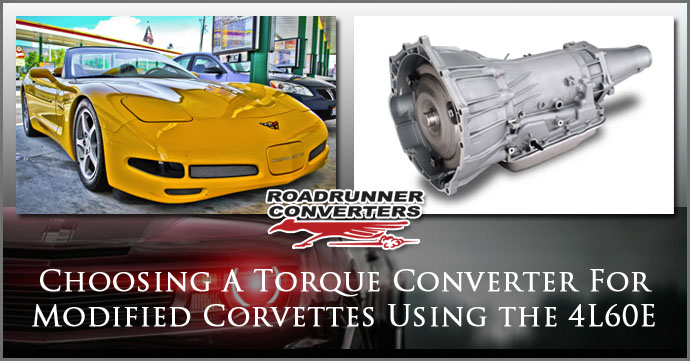Corvettes are a true American icon with many dreaming of owning one from childhood. The first Corvette was introduced during 1953, which a rough start. It was built with a six-cylinder engine considered fairly weak, and was nothing near performance levels. However, these things changed by 1955 when Chevrolet put a small block V8 engine into the build.
Progression Of Corvette Transmissions
Over the years, Chevrolet has constantly modified the Corvette, which has caused it to become one of the leading performance vehicles in the world. In 1984, the fourth generation Corvette was introduced as C4. It began with a four-speed automatic from General Motors. By 1992, the transmission was installed with a modified version into the 4L60E. Although may aspects of the transmission were shared with the 700R4, the largest difference was the full electronic transmission.
Chevrolet continued offering the Corvette 4L60E option until 2004, and into production of C5 Corvette series. With time, 4L60E Corvette’s have become more affordable to the public. There are various owners with an upgraded motor in these Corvettes, with improvements being made to the 4L60E transmission as well. Although, not as many have upgraded their torque converters.
One of the most common reasons for not upgrading the torque converter is simply, most don’t understand the necessity of a properly matched torque converter with a performance vehicle. Below we will go over the need to know information when deciding on a torque converter that matches with your 4L60E performance transmission.
Importance of Torque Converter Choice
The following explains the knowledge required for choosing the best torque converter. It includes a number of factors you should consider including the size of motor, cam profile, power adders, and the weight of your vehicle. All of these factors play into the overall performance of your vehicle and relate to the type size and specs of the torque converter you should choose.
Cubic Inch of Motor
The bigger your motor, the more torque your motor will produce. Generally, this occurs with a lower RPM range. A smaller motor will require a higher stall speed converter that allows the car to launch at decent power levels, or it will bog down. It is common for small block engines to create power at higher RPMs compared to a big block. A lot of this factors down to the stroke of the motor.
Cam Profile
When cam profiles are more radical, the higher your stall speed converter will be. What radical translates to is the cam’s long duration and high lift. The cam profile plays into the power delivery of your engine and will have an effect on the best torque converter selection for your vehicle.
Power Adders
There are performance products, such as superchargers and nitrous that alters stall speeds. For instance, the Corvette stall speeds is around 2100 RPM. When a positive displacement supercharger or nitrous is installed, the stall speeds are likely to increase several hundred RPMS due to lower end power by the motor. However, this does not apply with a centrifugal supercharged motor or turbocharged motor. Although, they both require a higher RPM for producing power. With these power adders, you would want to choose a stall converter that provides RPG ranges much higher to benefit from the power produced in the later part of RPM power curves.
Vehicle Weight
Vehicle weight is another important factor with the amount of stall you have from the stall converter. The simple concept is, the heavier your vehicle, the higher converters stall. For instance, the advertised 2100 RPM stall converter in a 2500lb car may stall at 1800 RPM. However, the same in a 3500lb vehicle could stall at 2100 RPM. Meanwhile, the stall may be 2400 RPM in a 4500lb vehicle. Advertised stall speeds are simply an estimation.
At some point, you will encounter the choice of replacing the 4L60E transmission in Corvettes, from abuse or high mileage. It is greatly recommended to use a re-manufactured transmission over a rebuilt transmission. Re-manufactured transmissions will come with higher quality warranty, usually a three-year compared to a 90-day warranty on rebuilt transmissions. In rare events you may need to contact a company over re-manufactured transmissions, but they are only a quick email or phone call away.





